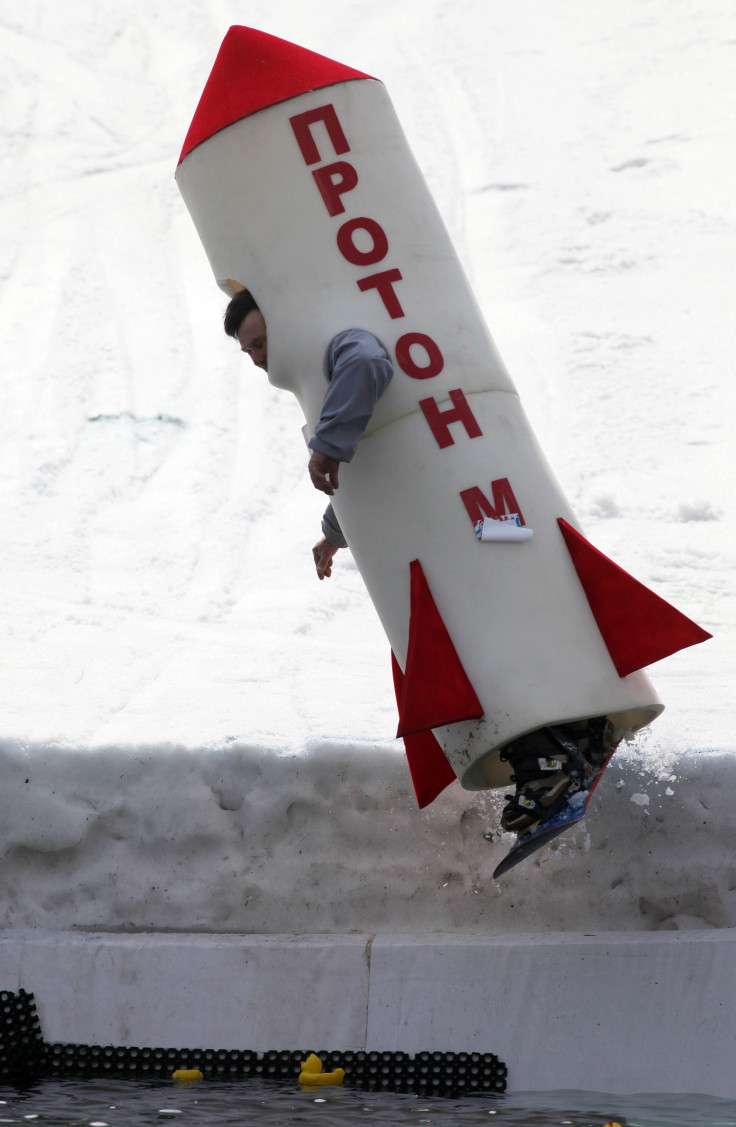
Mexican officials say they didn’t forget their space insurance ahead of a flawed Russian rocket launch that destroyed their MexSat-1 satellite. Named Centenario, the satellite was intended to celebrate the 100-year anniversary of the Mexican Revolution. If deployed successfully, it would have increased 3.5G communications services in rural areas as part of a 3-satellite constellation linked to sites on the ground. Centenario was destroyed about 8 minutes after the Russian Proton-M rocket took off from the Baikonur Cosmodrome, located in the former Soviet state of Kazakhstan. Fragments of the rocket and the satellite were reported scattered across uninhabited areas of Siberia.
Mexican officials admit that they were nervous ahead of the launch, which followed a string of SNAFUs by International Launch Service (ILS), a private company that subcontracts space work with the Russian government. A Proton-M rocket failed in July of 2013, and a recent delivery of supplies to the International Space Station failed to dock. The Proton-M was developed in the 1990s, and has had plenty of successful launches. Mexican officials were worried about the rocket and the ILS in light of recent mishaps, but say that they couldn’t cancel the launch without paying a large fee.
“I can’t hide that we had were slightly worried about the failures of [ILS], but considering that there was a $60 million penalty clause for not launching with them the recommendation was to proceed,” Gerardo Ruíz Esparza, Mexican Secretary of Communication and Transport said, according to La Jornada.
One reason they went through with the launch may be that Centenario was insured. Mexican officials secured a plan for the satellite with an astronomical $50 million in premiums, but no deductible. They say that a claim filed after the ILS fiasco will cover the estimated $300 dollar cost of the satellite as well as the $90 million dollar fee charged by the Russian Federal Space Agency. That means the crash didn’t take any cash out of Mexico’s coffers.
“We won’t lose a single peso,” Ruíz Esparza said.
However, Mexican Space Agency (AEM) president Fernando de la Peña called the contract with ILS and “error,” adding that it could cost the agency another year before another launch can be arranged, delaying MexSat-1’s mission.
“We clearly told this new government [headed by Enrique Peña Nieto] the risks, that there could easily be an accident because the rocket was very old and had a significant history of failure. Unfortunately the didn’t want to adjust the contract with the launching company.”

That discontent is bad news for Russia’s extraterrestrial reputation. Operations are now suspended at the Baikonur Cosmodrome.
"It seems that the Russian space industry is disintegrating with cosmic speed," Yuri Karash, a member of the Russian Academy of Space Science, told the Interfax news agency. “Due to low pay and a lack of new projects, those working in the space industry are "far from the best specialists and have no interest in cobbling together cosmic stools such as rockets developed a half-century ago."
Mexico already has plans to launch another MexSat-1 named Morelos III, after José María Morelos (he’s the revolutionary hero depicted on the 50 Peso bill). Morelos III will launch in October carried by a Lockheed Martin rocket from Cape Canaveral, Florida, which NASA operates.
© 2025 Latin Times. All rights reserved. Do not reproduce without permission.



